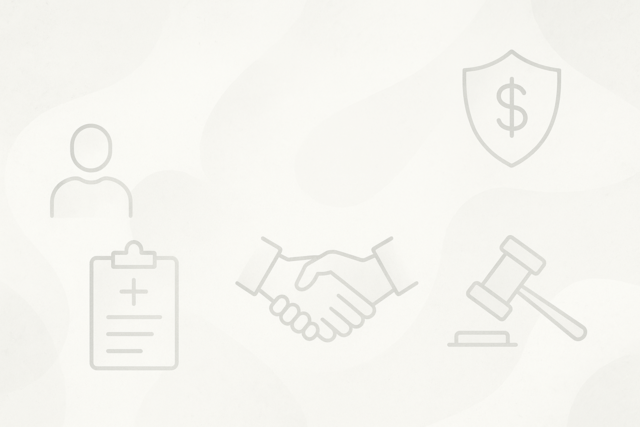A career in etiquette consulting generally does not require extensive training in formal programs, although it certainly can. Instead, the primary skills needed to enter this field of work include good manners, knowledge about etiquette, and good communication skills with others. These skills can also be learned in formal training programs, and they will provide you with the foundation you need to succeed in this career.
Manners
Probably the most important skill for an etiquette consultant is to possess impeccable manners. Once you become a paid etiquette consultant, many people will observe everything about you � the way you speak, how you make introductions, and how you eat your meals. If you ever display any behavior considered poor etiquette, people will notice. This is fine if you always show good manners. We all have "off" days though, so the question becomes whether you can display good manners even when you don't feel like it.
Research
You will be expected to know the answers to some of the most common and basic etiquette situations, and you will quickly learn these if you don't already know them because clients will ask you about them repeatedly. If a client asks you a question that you don't really know the answer to, it's fine to tell them that you need to check with your sources before offering a response. This is especially true and important in international situations. It's not important that you know all of the rules of etiquette before becoming an etiquette consultant, but it is important that you know where and how to find the answers to the information you don't personally possess. Etiquette books and online resources can be excellent resources to answer your smallest of questions.
Speaking Skills
The role of etiquette consultant requires you to address a lot of different kinds of people. One day you might be presenting to grade school children and their parents and teachers, and the next you may be coaching the CEO of a large international organization.
The career demands that you do a lot of speaking. When you sell your services, you'll be speaking about your programs. When you're coaching and consulting, you'll be speaking with clients either one-on-one or in a group. You will also speak to civic and professional groups about the value of developing strong etiquette skills. For these various situations, you will need to develop skills that enable you to speak effectively with both individuals and in front of groups.
Interpersonal Communication
Speaking one-on-one is generally deemed interpersonal communication. Because this career requires that you go beyond simple compliments and basic conversation to explaining to people what is wrong with their behavior, you need strong communication skills that enable you to communicate both honestly and diplomatically. Another term for these skills is social intelligence, and there are many books on the market that are aimed to help you improve your social intelligence skills. Rather than address each of these individual points and skills here, it is better to direct you to a book that you can easily connect with. Just be sure the book is written by a credible author. In order to be effective in this industry, your clients must like you, trust you, and be confident that you are operating with their best interests in mind when they conduct business with you.
Briefly, the following list offers some simple examples of expressions that lead to trust and openness, as well as expressions that lead to closure and distance.
Expressions for Developing Trust and Openness (Use these!)
- Thank you for sharing that
- You're right
- That's an interesting idea
- That's a good point
- I see what you mean
- I'm so glad you brought that up
Expressions for Developing Closure and Distance (Avoid these)
- What are you talking about?
- You're wrong
- That's not true
- Are you kidding?
- That's ridiculous
- I doubt it
Presentation Skills
This is another area of communication where many books and courses are available, yet the material is simply too vast to include in this course. Briefly, attention needs to be paid to content, organization of that content, and delivery. That is, it's important to not waste people's time by filling the air with information that is not relevant to your audience. Also, listening to a poorly organized presentation is frustrating at best and completely confusing at worst. Further, the words you choose to express your ideas and the nonverbal communication cues you use, such as gestures and vocal tone, make a huge difference in whether your audience will like you and accept what you say or not. You can find entire courses on public speaking, developed and delivered by highly credible instructors, often for free online. Select your course with care, and be sure it covers matters of content rather than only delivery.
To help you improve your comfort level with speaking in front of audiences and to help with your delivery joining Toastmasters is a fine idea. Just be sure to supplement your public speaking training with something that also focuses more on content. Also be sure to ask for feedback on your strengths and areas where you can improve. This is essential if you want to be a better public speaker. Be sure to receive that feedback with courtesy and gratitude, and incorporate the suggestions you receive.
Business Skills
Once you have the etiquette skills and communication skills necessary to succeed in this field, you also need to develop good business skills. You need to develop an effective and highly functional organizational system.
Organization
You will need to be able to keep track of training materials, client materials, invoicing, expenses, and other sorts of records. Use whatever system works best for you. This might be a paper-based system and file cabinets, or a well-organized computer system and database, or perhaps a bit of both.
Keeping Track
Of People
You will meet a lot of people in this line of work, often many at once such as at meetings where you present your talents and skills. Contact management software such as Microsoft Outlook can be a great investment for helping you keep track of the people you meet. Additionally, when you meet people, feel free to jot a few notes about them on the back of their business cards.
Of Information
You will acquire quite a lot of reference material in this field. Be sure to keep it organized so you can easily find what you're looking for when you need it. Keep similar materials together, and label them neatly.
Of Your Schedule
Your calendar will become filled with appointments as an etiquette consultant, some of which will require you to stay in your office and some of which will require you to be at certain places at certain times. You need a good organizing system for your appointments. Some people with these sorts of scheduling demands use a large paper calendar with 15-minute blocks pre-set on each day. Others prefer an electronic calendaring system. Whichever system you choose, be sure you keep it up to date at all times. There is no easier way to miss an appointment than to not have it written in your calendar.
Time management also becomes prominent when you're handling multiple client meetings and obligations. Consider creating a written "to-do" list for each day, prioritizing the items you put on it. Realize that on many days, not all of the items on your to-do list will actually get done, so this prioritization is key to ensuring that the most important tasks do get accomplished.
Learning Etiquette Consulting
As mentioned previously, you can enroll in a formal training program for this career choice if you like. You can also possibly find a mentor already in the field who is willing to teach you the ropes. One good way for this is to work alongside your mentor, perhaps for an hourly rate for perhaps as an unpaid intern, and learn the industry by participating in it. Some organizations offer professional mentoring services for a fee.
Volunteering is another way to develop your etiquette consulting skills. You can volunteer for any event in your area that involves dignitaries, such as helping with local mayoral events or assisting in international events such as summit meetings. Also, non-profit groups can always use help with their fundraising and galas, which provide you with the added benefit of making contacts in the community.
Providing etiquette consulting services to friends and family for free is another way to develop your skills. You may have the opportunity to consult on dining or wedding etiquette, or on doing business with someone from another culture. Friends and family might also be able to offer you opportunities through their own places of employment or other organizations they belong to.
Every time you provide etiquette consulting for someone, even a friend or family member (with a different last name than yours), ask for a letter of recommendation. These look better when they are written on letterhead, whenever possible. Busy people don't always have time to write these letters as you may wish them to, so it may be a good idea to offer a list of points you feel appropriate to have addressed in that letter.
Work experience can also help you develop your etiquette consulting skills. Look for jobs especially in the following fields, across all sectors: non-profit, governmental, corporate, and individual:
- Customer service
- Events (especially involving dignitaries or special guests)
- Hospitality
- International relations
- Protocol
- Public relations
- Training
CONDUCTING ETIQUETTE CONSULTATIONS
The situations in which you will find yourself as an etiquette consultant vary widely, for etiquette is an important part of every level of society and all of our social and business interactions and activities. You might work with anyone from young children to seasoned professionals. The demands of each consultation will vary depending on the client, their particular needs, and the specific etiquette skills you will be working with.
Consultation Types
Most consultants specialize in a particular niche, such as children's programs or corporate behavior. Consultation requests will either involve individuals or groups.
Individual Consultations
These consultations are also known as personal coaching, private consultation, and one-on-one consultation. These are generally conducted in person, but can also be done over the telephone. They are generally conducted with one person, but can also involve a couple or family members, such as a consultation for wedding etiquette. These types of consultations allow you to tailor your coaching to the specific needs of the client, and permit a more intimate setting.
Group Presentations
Group consultations can involve a small group of five up to a large group of several hundred. Working with small groups offers an intimate setting and allows for discussions and a variety of training modes including lecture and role-playing.
Not everyone will thrive in a group training. You might work with a high-level executive who does not want her employees to know she is receiving such training, or you may work individually with an employee who needs personal attention. In an initial meeting with a potential client for a group training, it is appropriate to ask if there may be anyone who prefers or requires individualized training due to special needs or scheduling conflicts.
Learning Styles
Not everyone responds to presented material in the same way. People have individualized learning styles, and your training needs to vary based on the type of learning style your client has. You will need to be comfortable with all learning styles and be able to offer training that meets the needs of all learning styles.
There is a good deal of literature available about learning styles in books and online. One classification offers the following:
- Visual learners learn best when they can see what they are learning. Visual aids such as charts, graphs, and images are most effective.
- Aural learners learn best by hearing what they need to learn. Lectures and discussion groups are highly effective for this learning style. Interacting with these students and encouraging group discussion helps these learners.
- Read-Write learners take notes about the lecture and the discussion, learning best from these sorts of materials. Handouts and training that allows notetaking helps these learners.
- Kinesthetic learners are hands-on, and learn best through touch and physical movement. Role-plays and hands-on experience helps these learners.
Often, learners respond well to more than one learning style. Try to identify the learning style of your clients and design your consultations to meet this client's specific learning needs.
Individual Consultations
When consulting with a client individually, you will need to assess the client's needs and determine a plan of action. The action plan must keep in mind time and budgetary considerations. For a private consultation, the following steps will help ensure you meet your client's needs satisfactorily:
- Set date and time of initial consultation.
- Send intake questionnaire to client well before the meeting.
- One to two days before the meeting, confirm meeting and remind client to complete questionnaire.
- Attend meeting and ask follow-up questions.
- With client, determine a primary goal. Then break that primary goal into smaller, more manageable goals.
- Write goals in the Action Plan (below).
- Identify necessary skills for each goal, and include each skill in the Action Plan.
- Identify where the client can acquire the necessary skills and include in Action Plan.
- Determine dates of completion for each training, and include in Action Plan.
- Create a Training Plan based on the training options available and your client's goals.
Needs Assessment Questionnaire
In many fields, and this is no exception, it's wise to have the client fill out an intake questionnaire. This gets your client thinking clearly about what she wants to accomplish, and gives you a starting place for devising a plan. It also helps make your first meeting more productive. You can send the client the questionnaire ahead of time or post it on your website, but ask the client to bring it with her to the initial meeting. If your client is looking for business etiquette consulting, some industry-specific questions might be useful.
Initial Consultation
This consultation is an opportunity to work together to understand and decide what your client needs and wishes to accomplish with etiquette consulting. Another name for this meeting is a needs assessment.
If you have an office, this is the ideal place for the initial client consultation. If you do not, then this meeting can take place in your client's office, your home, your client's home, or a coffee shop.
In this meeting, your client talks and you listen. Have your client tell you what they are looking for and listen for ways that you can meet those specific needs. Also note the client's nonverbal communication cues, and consider what needs the client may have that she may not be aware of.
Review the intake questionnaire with your client in this meeting. Ask follow-up questions in a non-threatening manner by framing your questions like, "Would you be interested in learning more about how to�. more effectively?" or "Do you want to learn more about how to introduce business associates to each other?"
Also get a sense for the client's budget and timeline for the training. This will allow you to meet your client's needs in these ways as well, or identify whether the client's goals are not reasonable given the client's timeline. If the client's goals and timeline are not reasonable or possible, it's important that you let them know this and offer an alternative to that request. It's a mistake to try to meet unreasonable demands, as you will not succeed, your reputation will suffer, and your client will be dissatisfied with your service. Instead, suggest something that is attainable. In this way, you are still providing a service, and they may well come back for more.
Action Plan
With a good idea of what your client wants and needs, you work together to develop an action plan. This is a written statement identifying what you want to accomplish and how you intend to get there. Creating the action plan is a 3-step process: 1) determine what you want to accomplish; 2) determine which skills your client will need in order to meet his goals and identify the training necessary; 3) set a timeline.
Determine Goals
In this phase, you set your main goal and the smaller goals you will achieve along the way. The client's goals need to be specific, measurable, attainable, relevant, and time-specific. If the client's goals are to host a business dinner for 50 guests, many of whom are international, help the client break down this larger goal into smaller goals.
- Dining etiquette
- Business etiquette
- International etiquette for each country/region represented at the dinner
- Phrases from the foreign language(s) that may be spoken at dinner
- Host a business dinner for a small group
- Host a business dinner for 50 with many international guests
Assess the Necessary Training
Part of your job is to decide what specific skills are needed to meet the goals you have set, and what training your client needs in order to achieve these skills. Make a list, such as:
- Business etiquette (general)
- Dining etiquette (general)
- Introduction protocols
- Hosting protocols
- Foreign language training x 4 languages
- International protocol x 4 countries
From here, help the client create an action plan to accomplish these goals.
Conducting the Training
In conducting the training, you first need to consider where the client will receive training for each skill. If you don't speak the languages that the client needs to learn phrases from, you'll need to find a local tutor or class. Also, if you're pressed for time, you can outsource the non-etiquette training and focus on your niche or specialty. Even if you do have all of the necessary skills, you want to be sure you don't overdo.
From here, a training plan is completed. This plan specifies where and when each component of the action plan will occur.
Client Coaching
Training methods for coaching vary from hands-on training, such as a dining tutorial where you discuss dining etiquette during a meal or telephone etiquette, to printed handouts.
Lectures are more common for large groups when you need to present either a lot of information or present it to a lot of people at once. They generally include materials for all of the learning styles mentioned above: graphs and videos for visual learners, facts and information for aural learners, handouts and note-taking opportunities for read-write learners, and small group activities and role-plays for kinesthetic learners.
Role-plays are an excellent tool for etiquette training. They help clients rehearse their behavior for real situations. This sort of practice builds confidence for those real-life situations.
Corporate Consultations
Corporate consultations often involve front-of-the house personnel or sales staff. You should still forward a Needs Analysis Questionnaire to your contact person to more clearly understand what your client wants.
After evaluating your client's needs, you will create an action plan and training schedule, as for the individual clients. From there, you'll need to choose a topic, a date, and a venue for presenting.
In choosing a topic, most clients have a problem they are looking to solve. They may in fact give you the topic to present on. Whatever topic they suggest, find out all you can about this area and why it is a concern for them. Have there been client complaints? Is morale low? Are there internal changes to etiquette they would like incorporated? Whatever company standards are set, such as a certain way of answering the telephone, you will need to incorporate this into your training.
Other clients may want more generalized training in, for example, business etiquette. Use your needs assessment questionnaire to help you narrow a topic, and offer suggestions to the client.
After deciding on a topic, focus on what will appeal to those attending. Make your presentation relevant to their needs. Your presentation can be as broad or as narrow as time allows.
Select a date for the training that fits with your client's schedule and is reasonable for the time of year. Don't hold trainings in late December or on days that would conflict with holidays or popular local events.
In selecting a venue, if your client has a large enough space to host the training, that will be fine. Other options include an off-site venue such as hotel or convention center, provided the client is willing to pay for this site. Be sure to check out the training site before the date to ensure it is suitable for your needs. If training on dining etiquette, you will likely offer this training at a restaurant or catered to your office or your client's. Ensure that you have the proper tableware for the training.
Materials and Supplies
Clients appreciate walking away with something from the session. This might be handouts, a booklet, or a binder with pages of detailed etiquette advice. Your materials should summarize the information you presented, and possibly offer step-by-step instructions for implementing your advice in the setting it was intended for.























